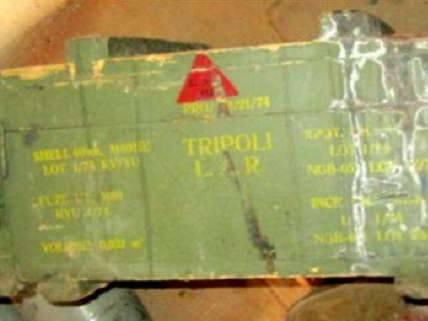UN Report: Security Situation in Libya 'Considerably Deteriorated,' Arms Exported Throughout Region
UN also worried about civilians buying guns

Arms largely in control of non-government groups in a deteriorating Libya are making their way by air, land, and sea to countries from Nigeria to Syria, according to a United Nations report by a panel of experts on the situation in Libya. That panel was tasked with reviewing the effectiveness of arms embargos, travel bans, and asset freezes implemented by various Security Council resolutions, including Resolution 1973, which authorized a no-fly zone over Libya and was used to justify NATO intervention.
On the arms embargo, the panel complains of "limited resources with which to cover a two-way embargo that is breached on a regular basis and covers the entirety of Libya's territory" and that the "geographical area covered by the Panel's investigations expands every year and includes a large part of Africa, Europe and the Middle East." One of the panel's recommendations is for more experts to analyze the situations on the ground. According to the report, weapons from Libya have reached Tunisia, Algeria, Mali, Niger, Chad, Nigeria, the Central African Republic, Somalia, Egypt, and the Gaza Strip, almost a who's who of deteriorating security situations in the wider region. The U.N. reports weapons are also trafficked via Turkey, Lebanon, and Qatar.
The panel is concerned, too, that some companies doing business with gun stores in Libya don't even know about the U.N. embargo. Handguns, in particular, are in high demand, according to the report, which suggests members of security forces could be selling their handguns to civilians. Government agencies in Libya anyway rely on local armed groups for some public security, which the U.N. panel points to as an implication weapons are likely being shared.
The demand for guns among civilians shouldn't be as a surprise. The U.N. panel describes a security situation that's "considerably deteriorated" and reports continued significant increases in "carjacking, robbery, kidnappings, tribal disputes, political assassinations, armed attacks and clashes, explosions from improvised explosive devices and demonstrations."
It's likely not regular Libyans worried about their personal and family security that's a primary contributing factor to the overall security situation in Libya. Instead, it's what the U.N. panel identifies as a "complicated mix of Al-Qaida affiliated and inspired groups" that have set up across Libya in the chaos that followed the 2011 intervention. The panel describes a firefight between Special Forces from the Libyan government and Ansal al-Shariah in Benghazi in November that killed nine. A campaign of assassinations and suicide bombings has followed in the city. The U.N. report also relays a raid on a Libyan military base identified as "camp 27," where the United States may have been training and supplying Libyan forces. The U.S. government responded to the panel's questions that "some items that had been transferred to Libyan control were unaccounted for and presumed stolen." Libyan forces have also been mired in clashes with former Qaddafi supports and tribal groups in the southern desert.
The U.N. panel also reported on widespread non-compliance with the travel ban and asset freezes. One travel-banned Qaddafi family member traveled from Algeria to Oman, which both countries confirmed, and Oman now says it doesn't know where he is. The U.N. panel suspects the asset freeze isn't being enforced much in banks throughout the African continent, where much of the Qaddafi family's "frozen" assets are believed to be.
Read the entire report here (pdf).


Show Comments (3)